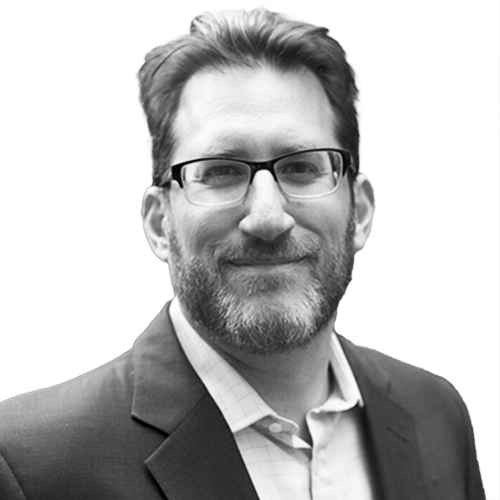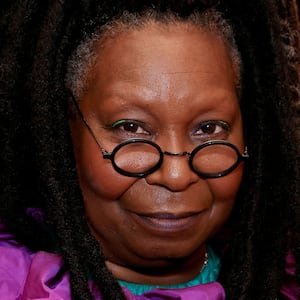More than a decade ago, President Barack Obama offered the definitive word on Kanye (now “Ye”) West—he’s a “jackass.”
In the 13 years since Obama made that comment (after West jumped on stage at the MTV Video Music Awards and grabbed a microphone out of the hand of 17-year-old, Video of the Year award winner, Taylor Swift), West has given the world plenty more reasons to call him names.
But this weekend, Ye hit a new low. In a since-removed tweet, he wrote, “I’m going death con 3 On JEWISH PEOPLE.” He denied that coule be be antisemitic “because black people are actually Jew” and then said, “You guys have toyed with me and tried to black ball anyone whoever opposes your agenda.”
Some defended his use of “death con” as a typo, and that he clearly meant “Defcon 3”—as if his metaphorical implication that he was moving the U.S. military’s defense readiness two steps closer to nuclear war “On JEWISH PEOPLE” was a less incriminating explanation.
And while most prominent Republicans (who’d never miss an opportunity to call out Democratic Reps. Ilhan Omar or Rashida Tlaib for using antisemitic tropes) stayed silent, several came to the rapper’s defense. This included Indiana Attorney General Todd Rokita, who bizarrely praised West on Twitter for his “independent thinking.” After criticism for the comments, Rokita offered the defense that he had an “obvious, clear, and substantial Congressional and public record of being 100% supportive of the Jewish community and Israel,” which is the political equivalent of saying, “some of my best friends are Jews.”
But, by and large, West was condemned, which makes sense. He has made so many offensive comments and bizarre statements over the years that calling him out is the low-hanging fruit of virtue signaling. At this point, it’s practically a reflexive response to West’s rantings.
The much harder lift: being an ally of Jews and a critic of antisemitism in all its forms. On that front, both Republicans and Democrats, right and left, continue to fall flat.
Full-throated condemnation of antisemitism within one’s own political tribe is the exception, not the rule. More often than not, denunciations of antisemitism depend not on the nature of the comments…but rather on who made them.

Rep. Ilhan Omar (D-MN) and Rep. Rashida Tlaib (D-MN).
Drew Angerer/Getty ImagesFor example, conservatives love to rip Omar, Tlaib, and any other leftie who dabbles in antisemitism, but this is the same political tribe that constantly attacks prominent Jewish philanthropist George Soros—whose very name has become an antisemitic dog whistle for “globalist puppet-master”—and supports politicians like Pennsylvania gubernatorial candidate Doug Mastriano, who has on the campaign trail attacked his Jewish opponent, Josh Shapiro, for acting disdainfully toward “people like us” because he sends his kids to a private, Jewish school.
Liberals rightly condemn Republicans for their vilification of Soros and casual antisemitism among Republican politicians—including the former President of the United States and still de facto leader of the GOP, Donald Trump. But ask them to criticize Omar or Tlaib, who just last month said one can’t be both a progressive and a supporter of Israel, and, frequently, they’ll goysplain to us that neither of the congresswomen has said anything offensive to Jews.
How many prominent liberals have spoken out about the fact that Jews, who are two percent of the population, are the victims of more than half of all hate crimes in America? Liberal New York City is home to the majority of antisemitic assaults in the United States—and virtually none of them are carried out by white supremacists.
Indeed, one of the more striking responses to the West imbroglio came from Jewish comedian Sarah Silverman who tweeted to her more than 12 million followers, “Kanye threatened the Jews yesterday on Twitter, and it’s not even trending. Why do mostly only Jews speak up about Jewish hate? The silence is so loud.” Rather than support, Silverman’s cri de couer sparked a furious backlash because she allegedly insulted those who have been critical of West.
American Jews might have hoped that their allies would respond to concerns about rising antisemitism, and a lack of allyship, with empathy and attentiveness. They might have expected that those in the same political and ideological camp as Jews would acknowledge and learn from the feeling of abandonment and disregard for antisemitism that many of us have felt long before Ye’s Twitter outburst. In short, they wouldn’t make it about them, but rather us…Jews.
Today, it’s largely accepted on the political left that the appropriate response to those recounting racist experiences is listening to and learning from the aggrieved party. But Jews are rarely afforded the same respect. Our experiences with antisemitism or our feelings of isolation are questioned and dismissed.

Naomi Campbell, Kanye West, Irina Shayk, and CCO of Burberry Riccardo Tisci attend the Burberry Spring/Summer 2022 aftershow party in London.
David M. Benett/Getty ImagesPerhaps it’s because most Jews have light skin and, thus, are seen as protected by white privilege. Or maybe it’s because we are seen as a community that is powerful and influential (another antisemitic stereotype), or perhaps it’s just implicit, unacknowledged anti-Jewish bias. But whatever the reason, in the hierarchy of concern over prejudice, we’re typically near the bottom of the pecking order.
And even though a talk show cancelled the airing of an interview with West, a full cancellation of his career is unlikely, as is a permanent branding of the superstar as an “antisemite.”
While racist, homophobic or sexist comments are often the deathknell for a celebrity career like West’s—antisemitism is usually just a speedbump (if even that). Don’t believe me? Go check out Whoopi Goldberg on The View today (in February, she said the Holocaust had nothing to do with race, and after a brief suspension is back on the job).
Or perhaps go rent the latest movies from Mel Gibson or Ice Cube.
Gibson has been accused of regularly calling Jews “Hebes” and “oven-dodgers,” decrying the Holocaust as “mostly a lot of horseshit,” and, during a 2006 arrest was caught on tape saying that “The Jews are responsible for all the wars in the world.” In 2020, Ice Cube, who has a long and sordid history of antisemitic utterances, spent an entire day tweeting anti-Jewish memes that suggested Jews are responsible for the oppression of Black Americans. Yet, in 2022, the rapper-turned-actor signed a multi-picture movie deal, proving that of all the sins one can commit in Hollywood, antisemitism isn’t one of them.
In fact, if Kanye is cancelled, it will likely be less because of his anti-Jewish rantings and more because of his open embrace of Donald Trump and his rejection of the Black Lives Matter movement—as recently demonstrated by his troll-wearing of a “White Lives Matter” t-shirt in an appearance with right-wing provocateur Candace Owens. West’s antisemitism will likely be forgotten or portrayed as a blemish on an otherwise influential musical career.
In short, the world will move on and Jews will keep asking themselves: “why is the silence so loud?”









